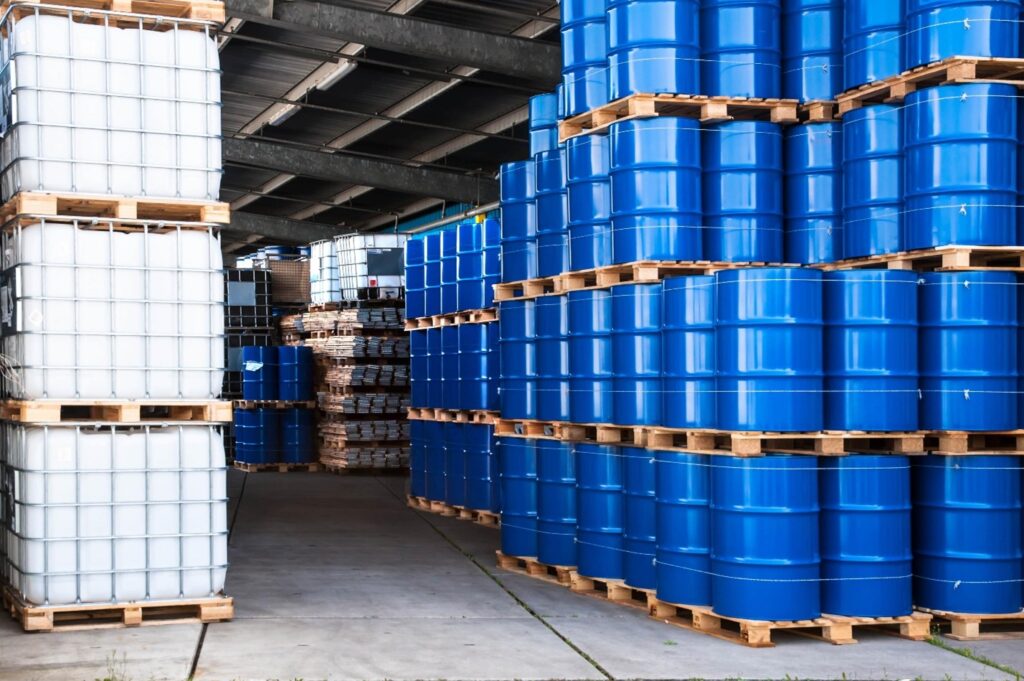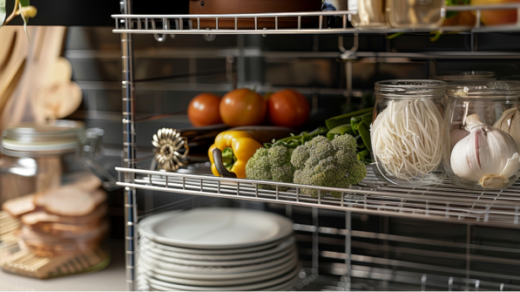
When it comes to managing storage and transportation within industrial settings, bulk containers and tilt trucks play a pivotal role. Global Industrial Port Washington reviews how these heavy-duty solutions provide essential support to warehouses, factories, and other facilities by offering durable and efficient methods for moving materials. From handling bulk goods to facilitating smooth loading and unloading, these tools streamline operations and significantly reduce manual labor.
Whether you’re looking for ways to optimize storage space or simplify material handling, understanding the different types of bulk containers and tilt trucks available is key to making informed decisions for your facility.
Features and Benefits of Bulk Containers
Bulk containers are versatile storage units that cater to a wide variety of industries, providing a convenient means to store and transport materials in large quantities. Depending on your specific needs, there are several designs and features to consider:
- Collapsible Containers
Collapsible bulk containers offer the benefit of space efficiency. When not in use, they can be folded down, saving valuable storage space. This feature is especially useful for facilities with fluctuating storage demands, allowing for compact storage when inventory levels are low.
- Forklift-Compatible Containers
For warehouses that rely heavily on forklifts, containers designed with fork pockets are a must. These containers make it easy for forklift operators to lift and move heavy loads without the need for additional equipment, improving both speed and safety in material handling.
- Stackable Containers
Maximizing vertical space is crucial in any warehouse. Stackable bulk containers feature reinforced corners or interlocking designs, allowing them to be safely stacked on top of one another. This not only improves organization but also increases storage capacity without requiring additional floor space.
- Insulated Containers
When it comes to transporting temperature-sensitive items, insulated bulk containers are a top choice. Constructed with thermal insulation materials, they help maintain the desired temperature, making them ideal for industries such as food processing and pharmaceuticals.
- Containers with Lids
Containers equipped with lids offer added protection for stored materials. Lids help shield contents from dust, debris, and environmental elements, ensuring the integrity of products during both storage and transportation.
- Lockable Containers
For industries handling sensitive or valuable materials, security is paramount. Lockable bulk containers provide peace of mind by keeping contents secure, preventing unauthorized access and protecting materials from theft or tampering.
Different Types of Bulk Containers
Understanding the various types of bulk containers available will help you choose the right one for your specific operational needs.
- Wire Bulk Containers: Constructed from sturdy metal wire, these containers allow for excellent visibility of contents while being collapsible for space-saving storage. They are ideal for warehouses that prioritize both durability and the efficient use of space.
- Plastic Collapsible Containers: Made from lightweight, durable plastic, these containers can be easily folded down for compact storage. They are a great solution for industries that require flexible storage options.
- Plastic Non-Collapsible Containers: These rigid plastic containers are resistant to chemicals and moisture, making them a go-to choice for industries such as food processing and pharmaceuticals where sanitation is critical.
- Steel Collapsible Containers: With heavy-duty steel construction, these containers are built to withstand tough industrial environments. Their foldable design allows for compact storage when not in use, while their high weight capacity makes them perfect for heavy-duty applications.
- Steel Non-Collapsible Containers: These containers provide maximum strength and durability with a rigid steel frame. Their stackable design makes them ideal for facilities that require the toughest storage solutions for large volumes of material.
Tilt Trucks: A Key Player in Material Transport
Tilt trucks, also known as dump trucks or hoppers, are indispensable for transporting and dumping materials within industrial environments. Their durable construction and ergonomic design make them ideal for long-term use, while their tilting mechanism simplifies the unloading of heavy or bulky items.
When selecting a tilt truck, several key factors should be considered to ensure it meets the demands of your facility:
1. Load Capacity
Tilt trucks come in various load capacities, typically measured in cubic feet or cubic yards. Common capacities range from 1/2 cubic yard to 2 cubic yards, so it’s important to choose a model that matches the volume of materials you need to transport.
2. Weight Capacity
In addition to load capacity, weight capacity is another critical factor. Tilt trucks can typically hold between 750 and 2,000 pounds, making it essential to choose a truck that can safely carry the heaviest loads you expect to handle.
3. Duty Ratings
Tilt trucks are available in different duty ratings based on how frequently they’ll be used and the types of materials they’ll carry:
- Light Duty: Suitable for occasional use or handling lighter materials. These trucks are commonly used in office settings or for light industrial applications.
- Standard Duty: Designed for regular use in industrial settings, these trucks provide a balance between durability and cost-effectiveness.
- Heavy Duty: Built for frequent use with heavier materials, these trucks often feature reinforced construction to handle more demanding tasks.
- Extra Duty: Ideal for the most rigorous applications, these trucks are engineered to withstand extreme weights and harsh environments.
Types of Tilt Trucks
Tilt trucks come in various types to suit different material-handling needs:
- Standard Duty Tilt Trucks: These are versatile, everyday trucks suitable for most industrial applications. Made from durable polyethylene, they balance strength and ease of movement.
- Heavy Duty Tilt Trucks: Reinforced for heavier loads, these trucks are ideal for tougher industrial environments where durability is key.
- Forkliftable Tilt Trucks: These trucks come equipped with fork pockets, allowing for easy lifting by forklifts, which is especially useful in large warehouses.
- Hopper Tilt Trucks: Designed for bulk material handling, these trucks are perfect for industries like construction or landscaping where easy dumping is required.
- Towable Tilt Trucks: Equipped with tow hitches, these trucks can be pulled by powered vehicles, making them ideal for facilities that cover large areas.
Bulk containers and tilt trucks are indispensable in industrial environments, providing robust, reliable solutions for both storage and material handling. By selecting the right type of container or tilt truck for your specific needs, you can enhance the efficiency and safety of your operations while optimizing space and minimizing manual labor.
If you’re unsure which product is best suited for your facility, consulting with an industrial equipment expert can help you make the right choice.



